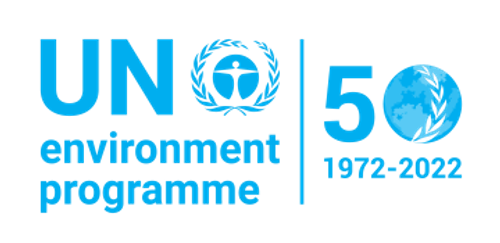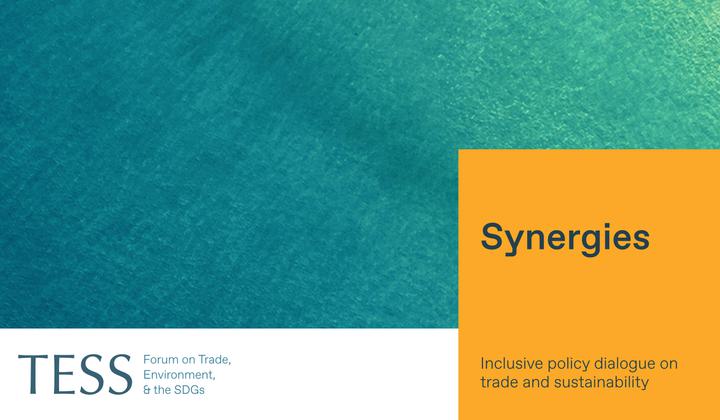TESS hosted this deep dive that brought together experts from government (both environment and trade ministers), international organizations, research centres, and stakeholders in an informal, brainstorming mode to discuss issues of trade and trade policy relevant to ending plastic pollution.
The overarching aim of the meeting was to advance understanding and dialogue on trade policy options and practices that can support efforts to end plastic pollution; learn from existing experiences; identify what evidence and research can support the engagement of policymakers and stakeholders on this topic; and explore whether further data and analysis is needed.
The meeting focused specifically on the relevance of trade-related policies for reducing trade in harmful, problematic, and unnecessary plastics and shifting to sustainable international value chains. While each session on the agenda featured short "thought starter" presentations, the emphasis was on enabling informal exchanges among participants.
Agenda
Welcome and Introductions
- Elisa Tonda, Chief, Resources and Markets Branch, UNEP
- Carolyn Deere Birkbeck, Director, TESS
Session 1: Update on Discussion on Trade-Related Issues in the Context of the INC and the DPP
Brief Update on Discussion on Trade and Trade Policy in the Context of the INC Process and Next Steps
- María Daniela Garcia, Ministry of Foreign Affairs, Ecuador
- Erlend Draget, Norwegian Ministry of Climate and Environment
- Brenda Koekkoek, INC Secretariat
Brief Update on Discussions in the Dialogue on Plastic Pollution at the WTO and Plans for MC13
- Rhys Pogonoski, Permanent Mission of Australia to the WTO
- Xiaohui Zhang, Permanent Mission of China to the WTO
- Anare Leweniqila, Permanent Mission of Fiji to the UN
- Daniel Ramos, Secretary of WTO Dialogue on Plastic Pollution
Moderator
- Carolyn Deere Birkbeck, Director, TESS
Session 2: Understanding Trade Flows Across the Life Cycle of Plastics
Challenges Related to Data on Trade Flows Across the Life Cycle of Plastics and for Problematic, Harmful, and Unnecessary Plastics, Including Single-Use Plastics
- Carolyn Deere Birkbeck, Director, TESS
Trade Flows Across the Life Cycle of Plastics
- Christophe Bellmann, Head of Policy Analysis and Strategy, TESS
Trade in Single-Use Plastics
- Lizzie Fuller, Principal, Plastics Treaty, Minderoo Foundation
Questions for Discussion
- What trade data and analysis are needed to inform discussions of trade-related measures on plastics?
- How and by whom can these data and analysis gaps be filled?
Moderator
- Joy Kim, Resources and Markets Branch, UNEP
Session 3: Overview of Trade-Related Options Related to 'Reduce'
State of Play on Use of Trade Policies and Measures to Support Plastic Pollution Reduction Goals
- Daniel Ramos, Secreatry of WTO Dialogue on Plastic Pollution, WTO
Review of Trade-Related Policy Options and Practices Related to 'Reduce and Circularity' Raised in the Context of the INC by Governments and Stakeholders
- Helionor de Anzizu, Staff Attorney, International Trade and Investment Law, Center for International Environmental Law (CIEL)
Synopsis of Range of Possible Trade-Related Measures, Obligations, or Pledges that Countries Could Pursue to Support "Reduce" Objectives at or Behind the Border?
- Mahesh Sugathan, Senior Policy Adviser, TESS
Questions for Discussion
- What are the products and inputs that reduce measures should target (including primary plastics, additives, single use plastics, and packaging)? What criteria to use for reduction and elimination?
- Why and where are trade-related measures relevant and what kinds of cooperation are necessary?
- What are the concrete trade-related options and practices that can support the ‘reduction’ of unnecessary, harmful and problematic plastics and what different forms of international cooperation can be envisaged?
Session 4: Trade-Related Options at the Border
Review of Trade-Related Options "At the Border" Used for Plastics and Examples from other Sectors/MEAs
- Daniel Ramos, Secretary of WTO Dialogue on Plastic Pollution, WTO
Capacity and Technical Issues for Regulations Enforced "At the Border"
- Gael Grooby, Deputy Director, Tariff and Trade Affairs, WCO
Questions for Discussion
- What are the key challenges, implications and barriers related to different trade-related policy options at the border?
- What actions could be taken to mitigate such challenges and barriers?
- What new innovations such as technologies for traceability and transparency of supply chains and identification of material composition of products could be harnessed?
- Where and how can these issues be discussed?
- What kinds of data and analysis are needed?
Moderator
- Axel Borchmann, Deputy Head of Unit, Federal Ministry for the Environment, Nature Conservation, and Nuclear Safety
Session 5: Trade-Related Options "Behind the Border" and International Dimensions
Overview of international standards relevant to plastics and plastic pollution
- Ariane Vincent, Managing Associate, Sidley Austin LLP
Standard-setting complexities, challenges and gaps
- Matthias Falkenberg, Programme Manager, ECOS
Issues and challenges related to labeling
- Gina Torregroza, Programme Management Officer, UNEP
Question for Discussion
- What are the range of trade-related options "behind the border" and areas where enhanced international cooperation is needed (standards, labels, EPR schemes, fees, etc)?
- What are the key challenges, implications and barriers related to trade-related policy options behind the border?
- What actions could be taken to mitigate such challenges and barriers?
- Where and how can these issues be discussed?
- What kinds of data and analysis are needed?
Moderator
- Carolyn Deere Birkbeck, Director, TESS
Session 6: Developing Country Perspectives, Opportunities, and Challenges
Trade-related challenges & opportunities for developing countries related to reduction and substitution
- David Vivas-Eugui, Legal Officer, UNCTAD
Questions for Discussion
- What trade-related challenges arise for developing countries in relation to international efforts to reduce plastic pollution?
- What challenges developing countries regarding design and implementation of trade measures at and behind the border?
- What are the opportunities for developing countries (e,g., to promote domestically produced environmentally sound substitutes for plastics that are eliminated or reduced)?
- What are trade-related priorities in regard to technology transfer & financing for technologies key to transformation and transition?
- What kinds of data and analysis are needed?
Moderator
Maria Daniela Garcia, Ministry of Foreign Affairs, Ecuador
Session 7: Ways Forward
Questions for Discussion
- Summary of trade-related knowledge gaps for further work
- Synopsis of lessons from trade-related experiences and practices at the national level
- Strategic reflection on issues for consideration in relevant international policy processes
Closing Remarks
- Elisa Tonda, Chief, Resource and Markets Branch, UNEP
In collaboration with




